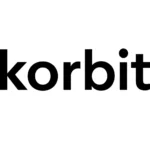Korean business leaders pledged $150 billion (208 trillion won, $111 billion) in US investments during a Washington roundtable that coincided with President Lee Jae Myung’s first meeting with Donald Trump.
The Federation of Korean Industries organized Monday’s gathering at the Willard Hotel, bringing together about 40 representatives from major conglomerates including Samsung Electronics, Hyundai Motor and SK Group. The commitment targets sectors from artificial intelligence and semiconductors to shipbuilding and nuclear power through 2028.
Korean Air dominated the announcements with a $50 billion aircraft order from Boeing and GE Aerospace—the carrier’s largest purchase ever. The deal includes 103 Boeing jets worth $36.2 billion, plus $13.7 billion in engine maintenance contracts.
The investment rhetoric comes as South Korea seeks to strengthen ties with the Trump administration after Seoul secured a tariff reduction to 15% from a threatened 25% on Korean exports. The deals are expected to create 25,000 direct jobs.
Korea Gas Corporation signed agreements for an additional 3.3 million tons of liquefied natural gas annually starting in 2028. Samsung Heavy Industries partnered with Oregon-based Vigor Marine Group for US Navy ship maintenance.
The timing underscores Korean companies’ strategy to leverage diplomatic momentum into concrete business opportunities. However, the ambitious figures represent aspirational spending commitments rather than binding contracts, with execution spread across multiple years and subject to market conditions.
Lee framed the partnership as reciprocal, stating Korea was ready to contribute to America’s industrial revival after decades of US support helped transform his country into a manufacturing powerhouse.
The investments target industries where Korean firms already maintain global leadership positions, suggesting calculated expansion rather than diversification into unfamiliar markets.




